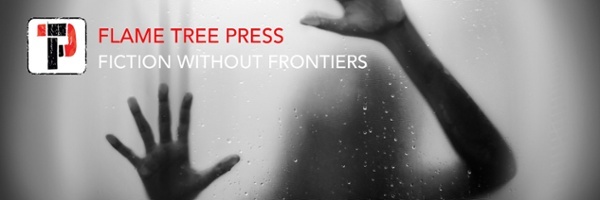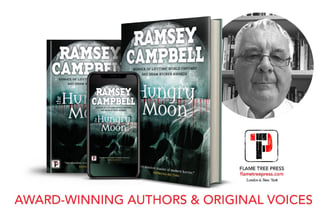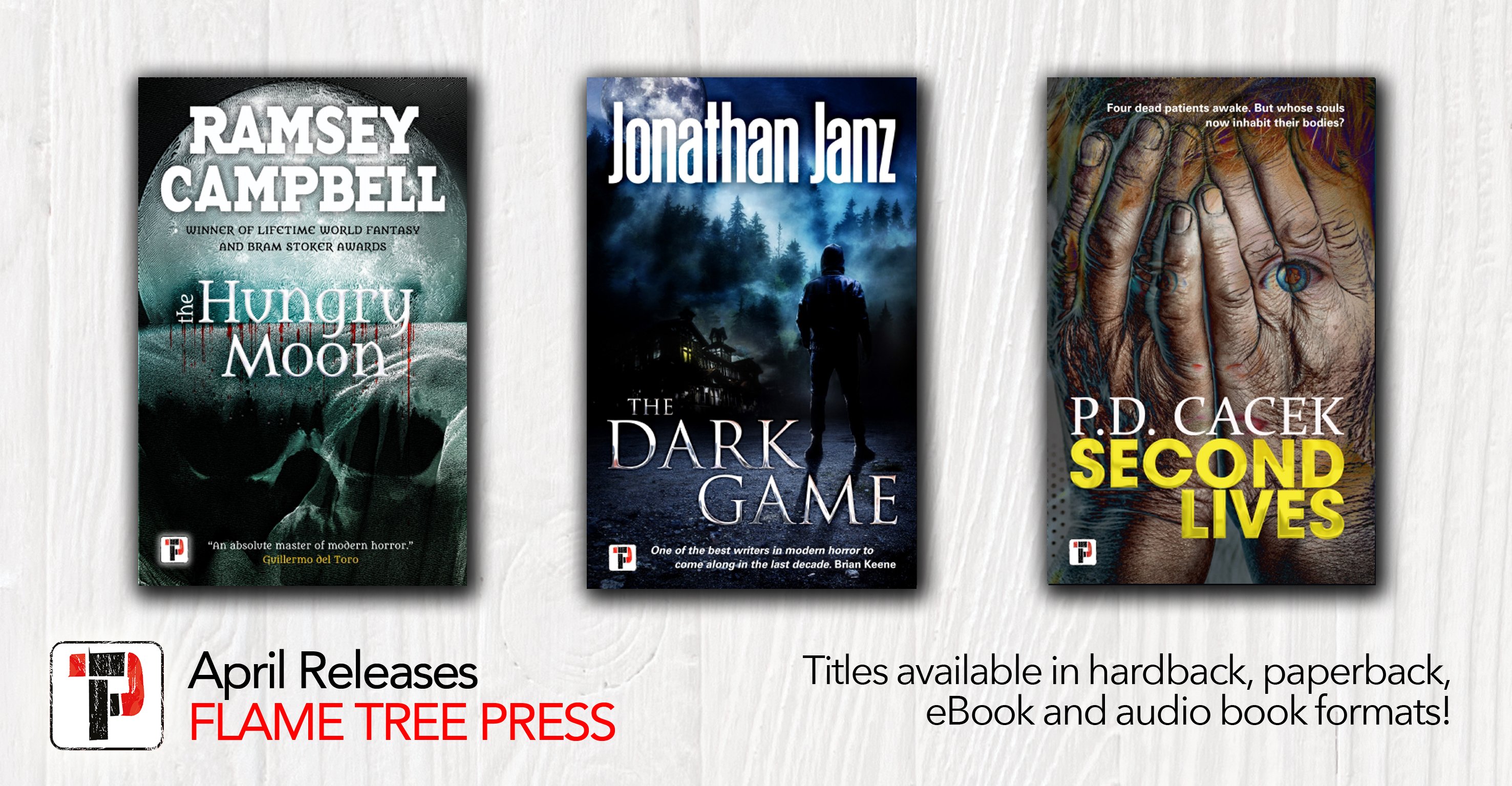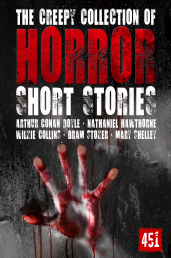This week marks the launch of three new titles for Flame Tree Press. We have brand new horror from Jonathan Janz and his book The Dark Game. We also have an amazing new novel from P.D. Cacek with Second Lives so make sure to look out for Q&As with both of those authors this week! Today we are looking at The Hungry Moon from Ramsey Campbell, a new to Flame Tree horror novel. Check out what Ramsey thinks of the book, why he writes horror and how he responds to people that say there's too much horror in the world already!

What is the book about?
Isolated on the moors of northern England, the town of Moonwell has remained faithful to their Druid traditions and kept their old rituals alive. Right-wing evangelist Godwin Mann isn’t about to let that continue, and his intolerant brand of fundamentalism has struck a chord with the residents. But Mann goes too far when he descends into the pit where the ancient being who’s been worshipped by the Druids for centuries is said to dwell. What emerges is a demon in Mann’s shape, and only the town’s outcasts can see that something is horribly wrong. As the evil spreads, Moonwell becomes cut off from the rest of the world…
What are the underlying themes?
Religious intolerance and more generally belief systems that claim to give you all the answers so long as you stop questioning. And a story of folk horror based on English traditions and the bleak lonely landscape of the Peak District – the awakening of a supernatural creature older than humanity.
Did you base your characters on anyone you knew?
All my characters are based on observation to some extent, but a character is very rarely drawn from a single real person. It’s more a matter of assembling a new person from traits borrowed from many, and some imagined traits too. What’s most important, especially in a story such as this one that deals with the supernatural, is that the characters should behave as real people might conceivably behave.
Is there any advice you can give someone starting to write?
Don’t despair, even when your work is rejected. Keep writing, and don’t leave work unfinished. Learn to enjoy rewriting as soon as you can – every piece of work needs it, believe me. Tell as much of the truth as you can. Always compose at least the first sentence before you sit down to write. Identify your most creative time to write and, if you can, work then – if not, try at least to write some of your new piece every day until it’s finished.
Where do you write?
I’m up at my desk that looks towards Liverpool across the river, and I always see the dawn when I’m working here. Some writers prefer to face a wall so as not to be distracted, but I believe I draw energy from the view, not least the ever-changing sky.
Do you find it harder to write, or for someone to edit your own work?
I haven’t plotted a novel in advance for many years – I gather material until the book feels ready to be started. I believe in letting the tale develop organically and surprise me as it does. The dark side of this is that I can find myself stranded far out in unknown territory with no idea how to proceed, but I trust the novel to rescue me – generally there’s material earlier on that proves to be the solution to where I need to go next in the story. It certainly can be hard to write, but more often it’s rewarding, even exhilarating. I’ve come to regard the first draft as a way of setting out what I need to work with. I’m increasingly ruthless at rewriting and enjoy it a good deal.
Why horror?
Because I’ve always loved the field. I started writing in it to pay back some of the pleasure it has given me and in the hope of adding a little of my own to it. Some of its greatest tales – Algernon Blackwood’s “The Willows”, Arthur Machen’s “The White People”, Lovecraft’s “The Colour out of Space” – ,reach towards awe, and that’s my ambition, however much I may fall short of it.
You’ve been writing horror fiction for more than half a century. Do you ever run out of material?
Not while I live and perhaps not even beyond that. I’ve notebooks full of ideas waiting for development. I believe the field is so wide I’ve by no means found its limits (by which I don’t mean excessiveness, but its ability to contain a great deal). The uncanny, the psychological, cosmic terror, social comment, comedy of paranoia, the monstrous both human and inhuman – they’re all in there, and more.
Some critics might suggest that there is enough horror in the world without creating it?
Would we say there’s enough crime in the world, and enough tragedy? Yet I’ve never heard those observations used as an argument that people should stop writing crime fiction or tragedies. For that matter, since there is indeed horror in the world, how could some art not reflect that? It’s also true that much horror fiction, whether supernatural or psychological, deals with a different kind than the horror in the news, though some of the fiction does indeed confront everyday experience.
What are you writing now?
I’m completing the third volume of a supernatural trilogy that spans most of seventy years, ending up in something like the present – The Searching Dead, Born to the Dark and now The Way of the Worm.
Thank you Ramsey!

Make sure you check out all three of our April titles!

Check out all of the April Release blog posts!
- FLAME TREE PRESS | April Releases | 1 | Ramsey Campbell Q&A
- FLAME TREE PRESS | April Releases | 2 | Jonathan Janz Q&A
- FLAME TREE PRESS | April Releases | 3 | PD Caceck Q&A
- FLAME TREE PRESS | April Releases | 4 | Upcoming Titles




